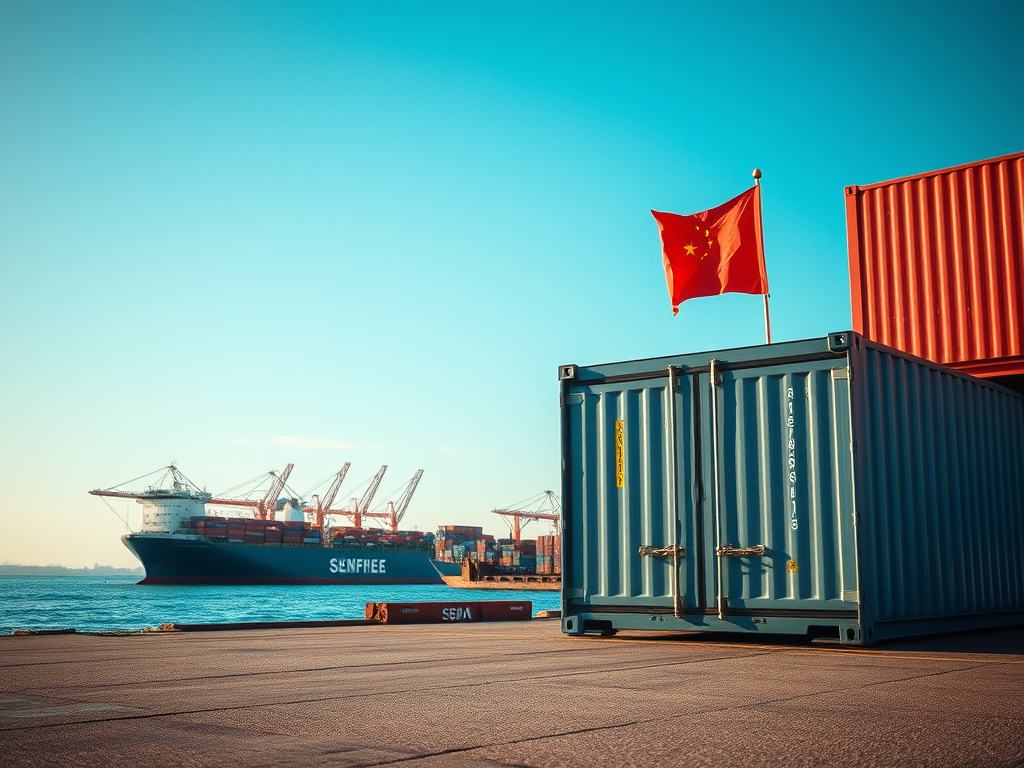- By TOP CHINA FREIGHT
- October 11, 2025
- Shipping
Table of Contents
The best way to ship home goods from China to Europe depends on your cargo type, budget, and delivery timeline. With countless options—sea, air, rail, and multimodal routes—importers often struggle to choose the most efficient and affordable method. This detailed guide explains every shipping option, cost breakdown, customs process, and professional tips to ensure your home goods reach Europe safely and on schedule.

Why Shipping Home Goods from China to Europe Requires Careful Planning
Home goods—ranging from furniture and décor to kitchenware—require proper packaging, insurance, and routing. Each product type demands different handling. For example, ceramics need cushioning, while wooden furniture may need fumigation certificates.
Moreover, customs documentation, tariffs, and EU compliance regulations must be strictly followed. Therefore, planning your shipping strategy early minimizes delays and saves costs in the long run.
What Are the Main Shipping Methods for Home Goods?
There are three primary ways to transport home goods from China to Europe: sea freight, air freight, and rail freight. Each method varies in cost, speed, and reliability.
| Shipping Method | Average Transit Time | Cost Level | Best For | Main Pros | Main Cons |
|---|---|---|---|---|---|
| Sea Freight | 30–40 days | Low | Large volumes | Cost-effective, reliable | Long transit time |
| Rail Freight | 18–25 days | Medium | Medium loads | Balanced speed and cost | Limited route coverage |
| Air Freight | 5–10 days | High | Urgent, light goods | Fastest option | Expensive for bulky goods |
Most importers find sea freight the most practical choice for large quantities of home goods, while rail freight offers a balance between speed and affordability for medium shipments.
How Much Does It Cost to Ship Home Goods from China to Europe?

The shipping cost varies based on cargo size, weight, and destination. Below is a general estimate:
| Shipping Mode | 20ft Container (USD) | 40ft Container (USD) | Air Freight (per kg) | Rail Freight (per CBM) |
|---|---|---|---|---|
| Sea Freight | $2,000 – $3,000 | $3,500 – $5,000 | — | — |
| Air Freight | — | — | $6 – $12 | — |
| Rail Freight | — | — | — | $250 – $350 |
Note: Prices fluctuate depending on season, port congestion, and fuel surcharges.
How Long Does Shipping Take from China to Europe?
Transit time depends on the selected route and transport mode.
| Route / Mode | Transit Time | Common Destinations |
|---|---|---|
| Sea (Shanghai – Hamburg) | 35–40 days | Germany, Netherlands |
| Sea (Shenzhen – Marseille) | 30–35 days | France, Spain |
| Rail (Xi’an – Warsaw) | 18–22 days | Poland, Czech Republic |
| Air (Guangzhou – Paris) | 6–8 days | France, Belgium |
Sea freight remains the most cost-effective for bulk goods, whereas rail freight provides a faster alternative for mid-range cargo.
What Documents Are Required for Shipping Home Goods?

Accurate documentation ensures smooth customs clearance. Below is a checklist for EU-bound shipments:
| Required Document | Purpose |
|---|---|
| Commercial Invoice | Declares the value and details of goods |
| Packing List | Lists package contents and dimensions |
| Bill of Lading / Air Waybill | Proof of shipment and ownership |
| Certificate of Origin | Verifies manufacturing country |
| Import License (if applicable) | Required for specific materials |
| Insurance Certificate | Protects against loss or damage |
| CE Declaration | Required for electronic or regulated goods |
Ensuring all paperwork is complete prevents costly port delays and inspection issues.
What Are the Customs Duties and Taxes When Shipping to Europe?
Import duties for home goods vary across EU countries. Most items fall under a 4–12% tariff rate, plus VAT (17–25%) based on destination. For example:
| Country | Tariff Rate Range | VAT |
|---|---|---|
| Germany | 5–10% | 19% |
| France | 4–9% | 20% |
| Spain | 5–12% | 21% |
| Netherlands | 4–8% | 21% |
Tip: Use Incoterms like DDP (Delivered Duty Paid) to simplify import taxes—your freight forwarder handles all customs payments on your behalf.
How to Choose the Best Freight Forwarder for Home Goods
Working with a reliable China freight forwarder is crucial. A good forwarder offers end-to-end solutions—pickup, consolidation, documentation, customs clearance, and final delivery.
When comparing forwarders, consider:
- Experience in home goods logistics
- Transparent pricing with no hidden fees
- Real-time cargo tracking
- Strong partnerships with carriers
- Expertise in EU import regulations
A professional forwarder not only saves money but also prevents customs errors and port storage fees.
Case Study: Efficient Furniture Shipping from China to Germany

A mid-sized retailer in Berlin imported two 40ft containers of wooden furniture from Foshan, China. Instead of using sea freight only, their forwarder combined rail + truck delivery, reducing total transit time from 38 days to 23 days.
The company saved $1,200 per container and received real-time tracking updates throughout the journey. This hybrid model demonstrated how multimodal logistics can optimize both speed and cost for European importers.
What Packaging Methods Protect Home Goods During Transit?
Proper packaging is essential to prevent damage. Common materials include:
| Item Type | Packaging Method | Protection Feature |
|---|---|---|
| Ceramic Items | Bubble wrap + carton boxes | Shock resistance |
| Wooden Furniture | Pallet + corner guards | Scratch prevention |
| Glassware | Foam inserts + double boxes | Impact absorption |
| Textiles | Plastic bags + cartons | Moisture resistance |
Additionally, labeling each box with “Fragile” or “This Side Up” ensures handlers treat them with care.
How to Optimize Shipping Costs for Home Goods
To reduce logistics costs without compromising safety:
- Consolidate shipments to fill containers efficiently.
- Use FOB terms so the forwarder arranges sea transport at better rates.
- Book early, especially before holidays or peak seasons.
- Choose flexible delivery windows to avoid express surcharges.
- Negotiate long-term contracts with freight providers.
Moreover, tracking market trends helps you plan when freight rates are lowest.
Conclusion
Finding the best way to ship home goods from China to Europe involves balancing cost, speed, and reliability. Sea freight remains ideal for large shipments, rail freight offers faster mid-cost options, and air freight is perfect for urgent or lightweight deliveries. By preparing the right documents, selecting a trusted forwarder, and optimizing packaging, you can achieve smooth, cost-effective transport every time.
Need a Shipping Quote?
If you want expert guidance and peace of mind, our team is ready to assist.
TJ China Freight offers tailored solutions to help businesses of all sizes ship more reliably from China.

FAQ
Q1: What is the best shipping method for home goods?
Sea freight is usually the best choice for large home goods due to lower cost and stable capacity.
Q2: How long does shipping from China to Europe take?
It typically takes 30–40 days by sea and around 10 days by rail freight.
Q3: What documents are required for shipping home goods?
You’ll need a commercial invoice, packing list, bill of lading, and import declaration.
Q4: Can I ship fragile furniture items safely?
Yes. Use strong packaging, cushioning materials, and choose a professional freight forwarder.
Q5: What is the most cost-effective shipping option?
LCL sea freight is ideal for small batches; FCL offers better rates for bulk cargo.



